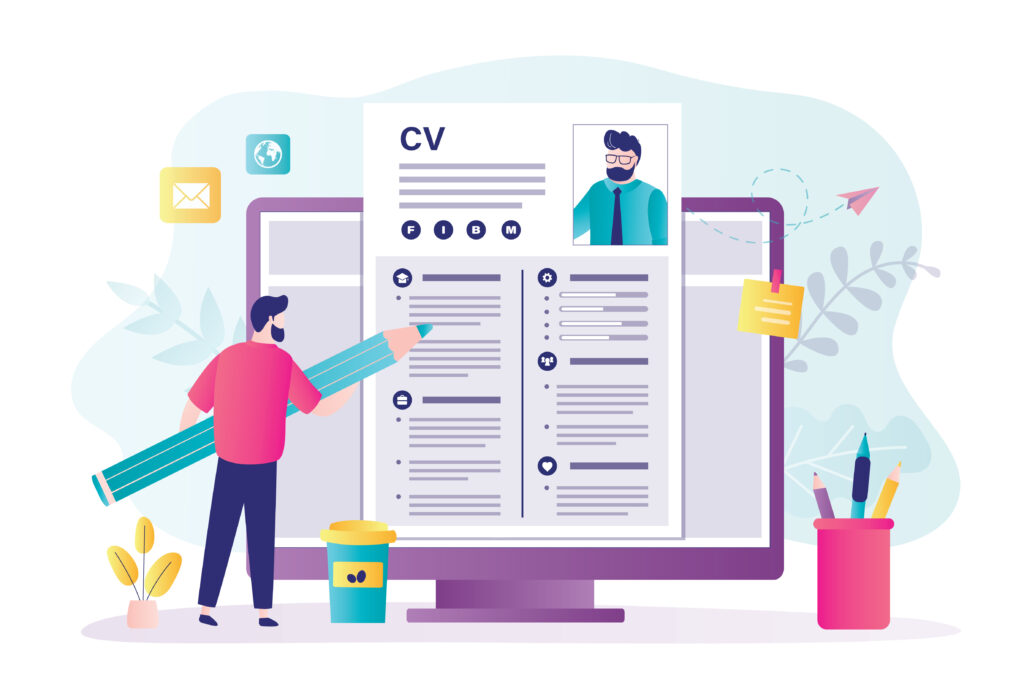Crafting the Perfect Medical CV: A Step-by-Step Guide

When you apply for a new job or seek a promotion, your medical CV is the key to making a strong first impression. This document highlights your strengths and accomplishments — vital in a competitive field like medicine. This guide outlines the content you should include in your CV, as well as tips and tricks to make it stand out from the crowd.
Understanding the Purpose of Your Medical CV
A CV is the key document that recruiters, program directors and potential employers look at when evaluating your credentials. It shows the depth of your knowledge and presents your full professional history.
Although people sometimes use the terms interchangeably, a CV is not the same as a resume. A resume is usually only a page or two, whereas a CV can span ten pages or more.
Preparing to Write Your CV
Before you start writing, take the time to gather any necessary information and documents, including degrees, certificates and licenses. Provide up-to-date details about your credentials. Program directors and potential employers will be looking for a thorough CV that accurately reflects your background.
Structuring Your CV
Your CV should follow the typical structure that employers have come to expect. Start with your education, and separate additional information with logical headers, such as professional experience and research.
If your CV is difficult to read, hiring managers will skip it and move on to the next option. Use a clean, professional layout with a standard font, bullet points and ample white space.
Personal Information
To follow up on your application, employers will need your contact details, including:
- Full name
- Phone number
- Email address
To maintain your privacy and convey your professionalism, create an email address that’s separate from your personal account. In addition, remember that most employers don’t require you to include your full home address.
Professional Experience
Your work history shows relevant experience in other clinical and non-clinical roles. Emphasize important details, such as:
- Position you held
- Employer names
- Dates of employment
- Achievements and responsibilities
If you previously worked in a position similar to the one you’re applying for, emphasize the skills you developed in that position.
Licenses and Certifications
Your CV should include all relevant licenses and certifications that you’ve obtained, such as physician state medical licenses and board certifications. Be sure to include dates and locations so that employers can determine whether your qualifications are valid.
Reach out to MLG for help with your CV.
Skills and Specialties
Specialized medical skills and areas of expertise can help distinguish you from other applicants. If you have several different skill sets, tailor this section to align with various job and program applications.
Professional Memberships and Affiliations
List the names of any professional organizations and your dates of membership. If you’ve held a leadership position or participated in any events, highlight those achievements to show you’re actively engaged in the industry.
Awards and Honors
Past recognitions from professional organizations, employers and academic institutions underscore your success. Provide a brief description of any relevant achievements.
Research, Publications and Presentations
List all your past research experiences, published articles and presentations. You can organize this section chronologically or based on the significance and relevance of each project. If possible, include a link so that the prospective employer can access your work.
Education and Qualifications
When describing your education, begin with your most recent program and work backward. This section should include:
- Medical school
- Internships
- Residencies
- Fellowships
For each entry, provide the name of the institution you attended, the location, your dates of attendance and the degree you received.
References
Your professional references should have firsthand knowledge of your skills, dedication and personality. Consider present or former employers, mentors and advisors, but ask them whether they’re willing to provide a reference.
You can include contact information for your references directly in your CV, but many applicants save space with a brief note stating they’re available upon request.
Personal Interests (Optional)
If you have personal interests or hobbies related to a position, including them can provide a fuller picture of you as a candidate. Keep this section brief so that it doesn’t distract from the more important aspects of your CV.
Finalizing Your CV
Submitting an error-riddled CV makes you seem careless. Try reading the document out loud or using an automated tool to check for grammar and spelling errors. In addition, ask trusted colleagues to read over your document and provide feedback.
Most importantly, remember that a CV is a living document. Regularly update it with new details, jobs and publications.
Strengthen Your CV
Building a great CV takes time and effort as you collect, organize and explain all the stages of your professional journey. It’s ultimately a worthwhile investment that can open doors to new opportunities.
At Medical Licensure Group (MLG), we understand the importance of a medical CV. That’s why we offer professional CV review and preparation services and provide nationwide medical licensing services to healthcare providers. Call us at 850.433.4600 or contact us online to learn more.